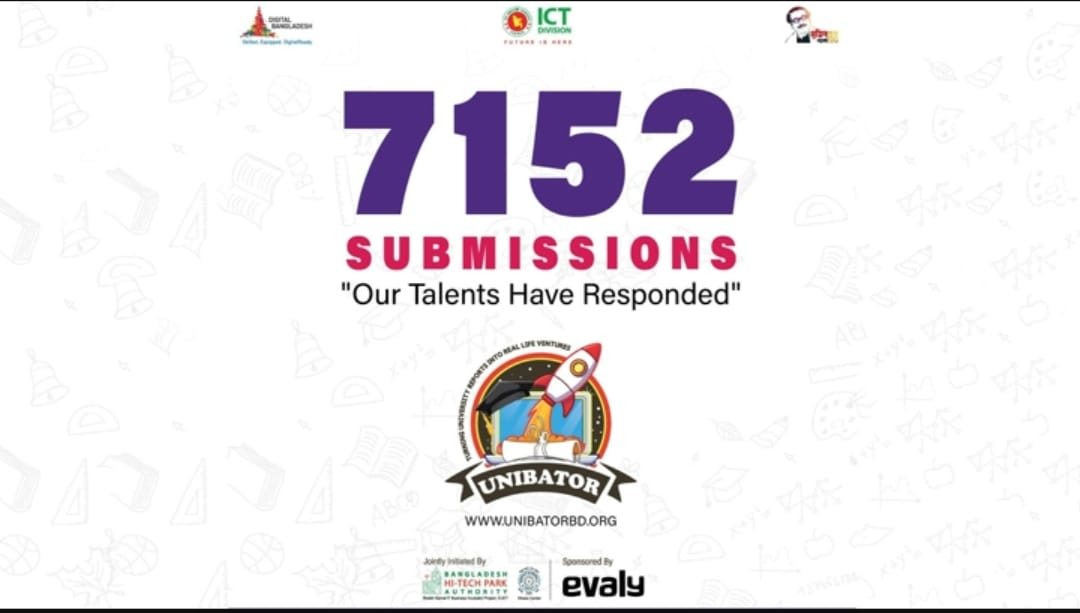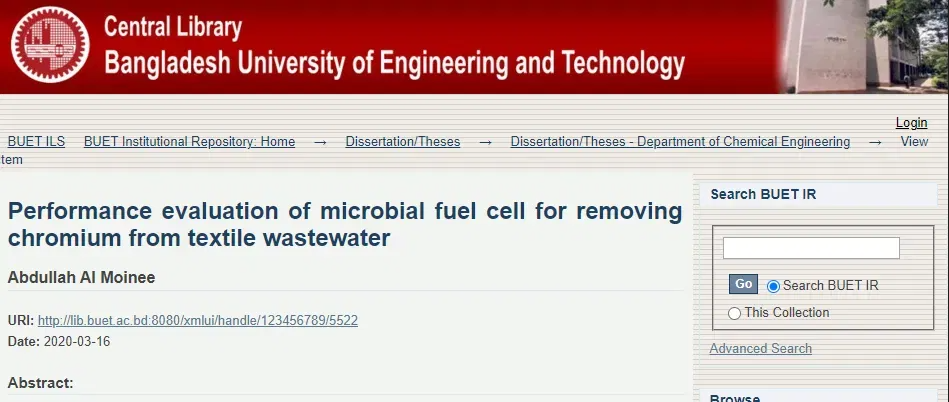Thesis | M.Sc.Engg.
PERFORMANCE EVALUATION OF MICROBIAL FUEL CELL (MFC) FOR REMOVING CHROMIUM FROM TEXTILE WASTEWATER
Supervisor: Dr. Nahid Sanzida, Associate Professor, ChE, BUET
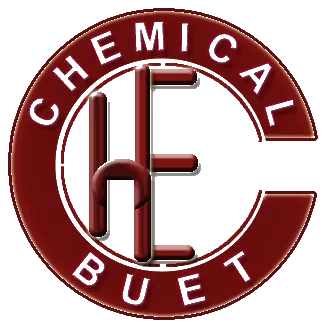 |  |
Abstract:
In Bangladesh, among the major industries, 25% is textile industries [1-2]. Due to the inadequately planned industrialization, large amount of wastewater containing organics and heavy metals are discharged into the environment daily. Heavy metals are characterized by high toxicity, non-biodegradability and bio-accumulation [3-5]. Chromium is one of the most toxic pollutants present in textile and tannery effluents. The conventional physical, chemical, and biological treatment methods are expensive, energy-intensive, and become ineffective if metal concentrations are below 1 – 100 mg/L [3]. In this situation, MFCs offer a green and energy-efficient technique for removal of heavy metals even at lower concentration [6-8]. Although the concentration of chromium in textile wastewater is relatively lower as compared to that of tannery [9], textile industries are more prevalent throughout the country posing greater threat to the community [10]. This study is focused on developing an efficient MFC to remove chromium from textile wastewater with simultaneous production of bioelectricity.
Objectives with specific aims and possible outcomes:
The primary objectives of this research are as follows:
To set up an MFC and evaluate different performance parameters e.g. power density, coulombic efficiency, and chemical oxygen demand.
To evaluate the chromium removal efficiencies of different MFCs for exploring a competent design.
The outcome of this study is a cost effective microbial fuel cell framework that utilizes the bioelectricity to treat the textile wastewater and remove chromium efficiently.
Outline of methodology / Experimental Design:
The methodologies and experimental design for this study are as follows:
i. The research work will be performed on both textile and synthetic wastewater.
ii. A double chambered Microbial Fuel Cell (MFC) will be operated in batch mode.
iii. The cell will be constructed employing low-cost materials. Carbon cloth, graphite bar, and aluminum foil will be used as electrodes for different combinations of anode and cathode.
iv. The cell will have the advantage of working at room temperature and pressure that excludes the consideration of cost for employing external unit operations.
v. On the basis of wide spread availability in various industries, Chromium, as one of the common heavy metals, will be selected to assess industrial and synthetic wastewater in different MFCs.
vi. Measure of Total Chromium and Chemical Oxygen Demand (COD) will be assessed for raw and treated wastewater by using spectrophotometeric analysis.
vii. The cell will produce electricity out of wastewater reducing the cost of power supply and effluent treatment.
viii. Generation of voltage and current will be logged periodically for evaluating power density and coulombic efficiency.
ix. The samples of electrode will be characterized using a number of analytical techniques such as X-Ray Diffraction (XRD), Scanning Electron Microscopy (SEM) and Energy Dispersive X-Ray (EDX) analysis.
References:
[1] National Accounts Statistics, Bangladesh Bureau of Statistics, Statistics and Informatics Division. Ministry of Planning, Bangladesh (2018).
[2] Nahid, A., Sarkar, P., Anjum, A., and Khan, E, A., Overview of major industries in Bangladesh. Journal of Chemical Engineering, Institute of Engineers, Bangladesh, 30(1), 51-58 (2017).
[3] Mathuriya, A.S., and Yakhmi, J.V., Microbial fuel cell to recover heavy metals. Environmental Chemistry Letter, 12(4), 483-494 (2014).
[4] Abdel-Raouf, M.S., and Abdul-Raheim, A.R.M., Removal of heavy metals from industrial wastewater by biomass – based material: A review. Journal of Pollution Effects and Control, 5(1), 1-13 (2017).
[5] Wu, M. S., Xu, X., Zhao, Q., and Wang, Z. Y., Simultaneous removal of heavy metals and biodegradation of organic matter with sedimentation microbial fuel cells. Royal Society of Chemistry Advances, 7(84), 53433-53438 (2017).
[6] Dominguez-Benetton, X., Varia, J. C., Pozo, G., Modin, O., Heijne, A. T., Fransaer, J., and Rabaey, K., Metal recovery by microbial electro-metallurgy. Progress in Material Science, 94, 435-461 (2018).
[7] Moinee, A. Al., Islam, T., and Sanzida, N., Effect of electrodes, aeration, salt bridges and source of microbes in a mediator-free double chambered microbial fuel cell. In proceedings of Fifth International Conference on Chemical Engineering (ICChE), Bangladesh, 339-348 (2017).
[8] Prakash, J., Microbial Fuel Cells: A source of bioenergy. Journal of Microbialand Biochemical Technology, 8(3),247-255 (2016).
[9] Deepali, K. K., and Gangwar., Metals concentration in textile and tannery effluents, associated soils and ground water. New York Science Journal, 3(4), 82-89 (2010).
[10] Sakamoto, M., Ahmed, T., Begum, S., and Huq, H., Water pollution and the textile industry in Bangladesh: Flawed corporate practices or restrictive opportunities?.Sustainability, 11(7), 1951, 1-14 (2019).
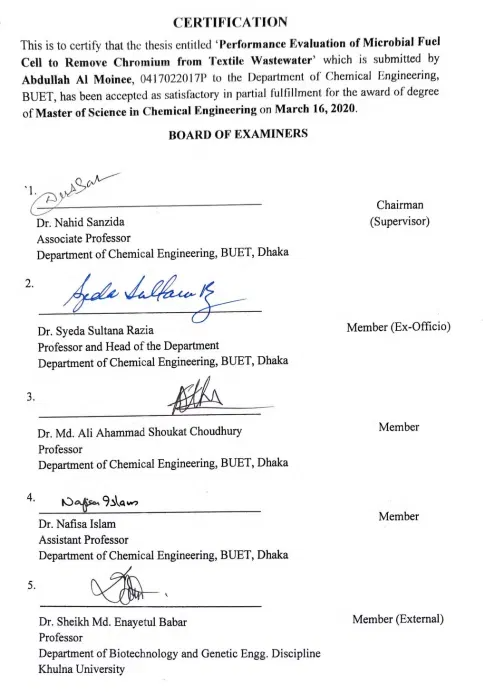
Publication: Moinee, A. Al., and Sanzida, N., June 23, 2021, “Performance Analysis of different Anode Materials of a Double Chambered Microbial Fuel Cell,” ICChE 2020, Chemical Engineering Research Bulletin, Bangladesh Journals Online, Bangladesh Academy of Sciences, 22(1), 26-31. DOI: https://doi.org/10.3329/cerb.v22i1.54295
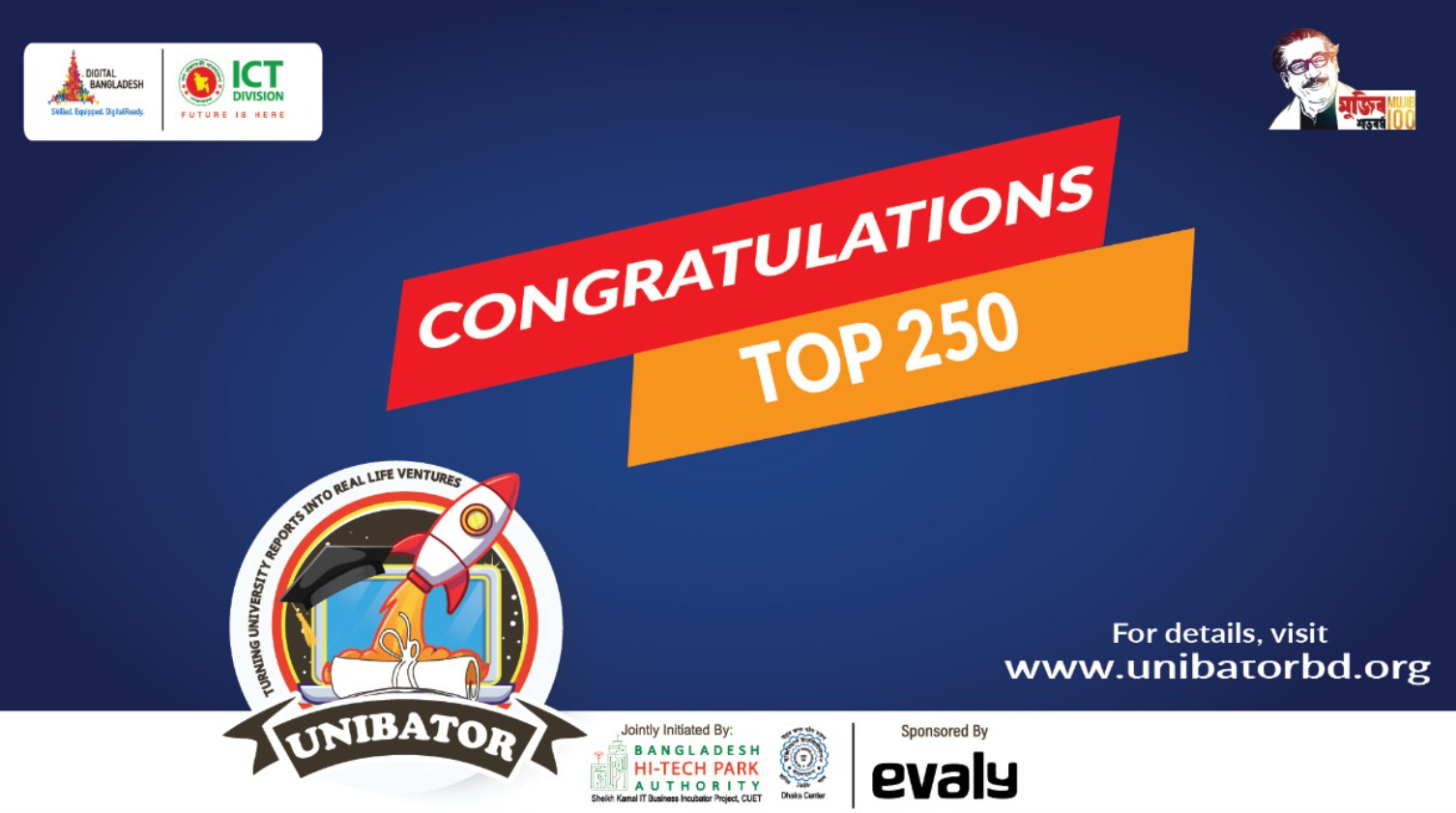
Project Name | Applicant's Name |
A high-risk location awareness | Dr. Armana Sabiha Huq |
Water vortex | Mohammad Foysal |
Medisearch | Mohammad Nazmul Hasan Pias |
Non-Invasive Bilirubin Level Quantification and Jaundice Detection by Sclera Image Processing | Rafat Jamal Tazim |
Design and Control of an Electrically Powered Knee Prosthesis by Taking Feedback from a Fully Functional Leg | A.M. Imrul Hasan |
Electric Vehicles and Hybrid Electric Vehicles (EVHEV) including solar panels create new way for reduce environment pollution and to give better tomorrow. | Abdul Halim (Rony) |
(Matir pran) farmers friendly digital portable soil testing device | Abdullah Al Araf |
Auto and semi auto incubator and other Handmade home automation electronics gadget | Abdullah Al Mamun |
Performance Evaluation of Microbial Fuel Cell for Removing Chromium from Textile Wastewater | Abdullah Al Moinee |
Smart unmanned autonomous car-suac | AbdullahAll Mamun Anik |
Searchbd - Search Engine | Abir Abedin Khan |
| Quantum.ai | Abir Hossain |
